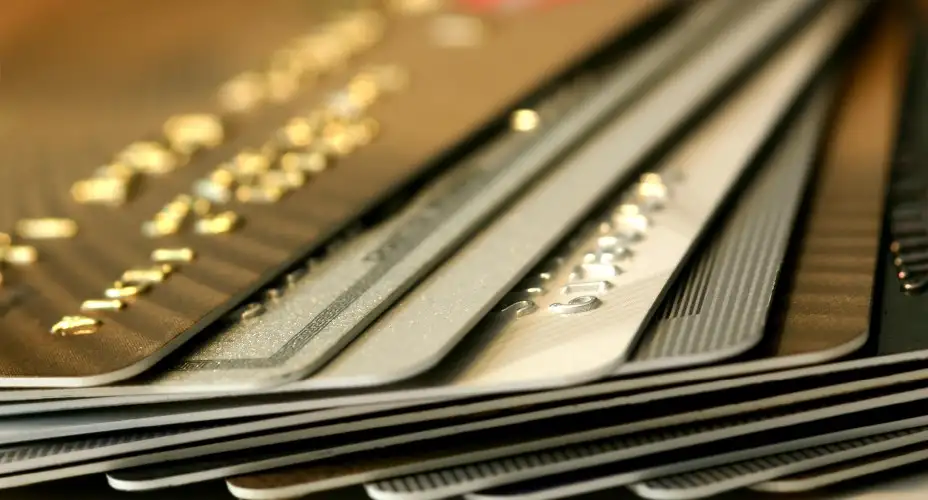
The U.S. credit card that gives the highest reward dollar value for travel, says a new report from NextAdvisor, is the Barclay Arrival World MasterCard, followed closely by the Capital One Venture Rewards Card. For every $100 you spend on the card, both return $2 for purchase of either air tickets or hotel rooms. Barclay edged out Capital One mainly because it returns a bonus of 1,000 points for each 10,000 points you use to pay for travel. Both cards also offer generous one-time enrollment or first-use point bonuses. Other details:
- Barclay: Annual fee $85, waived the first year; purchase APR 15 percent to 19 percent, depending on your credit, waived the first year.
- Capital One Venture: Annual fee $55, waived the first year; purchase APR 14 percent to 21 percent, depending on credit.
Both cards use the “bank value” travel reward model. That means the points or miles you earn accrue with the issuing bank, not any single airline or hotel program, and each point/mile is worth 1 cent toward the purchase of travel—or, with most such cards, the purchase of anything else. And no other cards provide returns as high for both air tickets and hotel accommodations.
Although Barclay and Capital One outscored the other cards for a combination of air tickets and hotel accommodations, the Starwood Preferred Guest American Express card, at a return of $2.61, outscored both for hotel accommodations. But the Starwood card scored only $1.35 toward air tickets.
For air travel, the other 12 cards scored between $1.80 (Citi Platinum Select/AAdvantage World MasterCard) and $0.59 (Citi Hilton HHonors ReserveCard); for hotel accommodations, they scored between $1.68 (Hyatt Credit Card from Chase) and $0.84 (Citi AAdvantage). Take a look at the full report for details here.
NextAdvisor is an independent research agency covering a wide variety of consumer issues. For 15 top credit cards, it calculated the net return per dollar spent for both air tickets and hotel accommodations. The air ticket test was based on cheapest available Los Angeles to New York and San Francisco to Washington round trips, in both summer and winter; the hotel room test was based on “standard” hotel prices in Los Angeles, San Francisco, and Washington, at various times of the year:
- For bank value cards, the return was based on the cards’ fixed dollars-per-point ratio when used to buy tickets or rooms.
- For airline and hotel cards, the return was based on the miles/points earned per dollar spent and the miles/points required for a ticket or room mileage/point award.
The NextAdvisor results pretty much agree with what I’ve recommended for many years:
- If you’re an occasional leisure traveler and your primary interest is in domestic coach-class air travel, you’re better off with a generous bank value card than a card that earns actual airline miles. That’s generally the case even without adjusting values to account for the increasing difficulty of scoring award seats with airline miles.
- But if you’re a frequent traveler who earns a lot of points by flying or staying at hotels, you may be better off augmenting your miles/points by using a card issued by the airline you fly the most or the hotel chain you use the most.
- Whether an occasional or frequent traveler, if your main interest is in premium-class air travel, your only rational choice is to earn actual airline miles. Premium fares and upgrades are so expensive that the bank value formula doesn’t work.
- On the other end of the scale, if you don’t travel much or at all, you’re far better off with bank value card points, which you can use to buy almost anything. When you use airline card miles for anything but air travel, they’re generally worth much less than bank points.
Clearly, the calculated reward values for credit cards will vary depending on the specific trips and destinations you choose for a test. But I believe that the overall patterns revealed by the NextAdvisor study are a generally good guide to credit-card choice.
Ed Perkins on Travel is copyright (c) 2012 Tribune Media Services, Inc.
You Might Also Like:
We hand-pick everything we recommend and select items through testing and reviews. Some products are sent to us free of charge with no incentive to offer a favorable review. We offer our unbiased opinions and do not accept compensation to review products. All items are in stock and prices are accurate at the time of publication. If you buy something through our links, we may earn a commission.
Top Fares From
Today's Top Travel Deals
Brought to you by ShermansTravel
France: 8-Night Paris, Avignon & Nice...
Infinity Worldwide Vacations
 vacation
$2880+
vacation
$2880+
Poconos: 3 Nts in Garden of...
ResortsAndLodges.com
 hotel
$305+
hotel
$305+
7-Nt Canada & New England Cruise,...
Princess Cruises
 cruise
$839+
cruise
$839+



